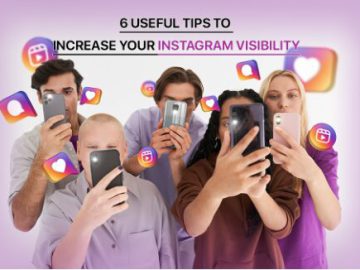Representative image (iStock)
“/>Representative image (iStock)By Kedarswamy Ravangave
In the rapidly evolving world of marketing, influencer marketing has long been positioned as a powerful tool for building brand awareness and consideration. But the future demands more. The lines between top-funnel marketing (which builds brands) and bottom-funnel marketing (which drives sales) are increasingly blurred. Influencer marketing, when tied to affiliate marketing models, could become the game changer we’ve been waiting for—a bridge that can bring these two crucial aspects together. I believe it’s time we challenge the way we think about influencers and ROI, especially in sectors like banking and financial services, where we’ve traditionally been slow to adapt.
The Current State of Influencer Marketing
Influencer marketing, as it stands, is largely focused on vanity metrics—likes, shares, and impressions that have long been used to justify awareness campaigns. While these metrics do provide value in building brand consideration, the reality is stark: in an age of increased accountability, brands need to justify every dollar spent. The need for metrics tied to actual ROI is not only a want—it’s a necessity.
Recent research shows that influencer marketing globally is expected to grow to $21.1 billion by 2025, with micro and macro-influencers both gaining significant traction. Yet, despite this impressive growth, a 2023 study by Influencer Marketing Hub found that a staggering 67% of brands still struggle to measure the true ROI of their influencer campaigns. Awareness alone can no longer be the end game.
Affiliate Marketing: The New Frontier
Here’s where we believe the solution lies: blending influencer marketing with affiliate models. Affiliate marketing has long been proven to be a direct driver of sales, grounded in performance-based payouts. Bringing influencers into this fold—linking their success to measurable outcomes like lead generation or actual sales—would revolutionize not only influencer marketing but the way brands think about funnel strategies.
This shift would require brands to build new payout models that go beyond awareness and focus on bottom-line impact. Influencers—be they micro, macro, or somewhere in between—would be rewarded for driving results that matter. And with the rise of tech solutions like UTM tracking, personalized coupon codes, and in-depth analytics, the infrastructure is already in place for brands to measure the actual value generated.
Why BFSI Needs This Change More Than Ever
While sectors like retail and e-commerce are already leveraging these models, BFSI (banking, financial services, and insurance) remains a laggard. This is surprising, given the increasingly competitive nature of our industry. With a consumer base that’s evolving and increasingly digital-first, traditional forms of marketing are no longer enough. Influencer marketing is ripe for disruption in BFSI.
Take, for instance, credit cards or home loans—two high-involvement products where trust plays a critical role. If we can equip influencers with affiliate models to drive not just awareness, but actual product adoption, we’ll see a dramatic shift in both reach and results. Why shouldn’t a micro-influencer who has a strong following among young professionals be rewarded based on how many credit card applications their audience completes? Why shouldn’t an influencer who specializes in financial literacy drive real leads to our home loan products?
Data-Driven and ROI-Led: The New Mental Model
The shift to ROI-based influencer marketing can’t be overstated. With brands spending upwards of $5 billion on influencers globally, it’s unacceptable that nearly 70% of campaigns don’t measure up to real ROI standards. Instead, we must be bold enough to move away from vanity metrics and redefine success in terms of actual revenue and customer acquisition.
To put this in perspective, brands that have adopted an affiliate-led approach have seen conversion rates as high as 15% on influencer-driven traffic. That’s a stark contrast to the often nebulous impact of traditional influencer campaigns. What’s more, research shows that affiliate marketing delivers an average ROI of 12:1—meaning for every $1 spent, brands earn $12 in return. Imagine coupling that with the reach and engagement of influencer marketing in a sector like BFSI, where customer lifetime value is significantly higher.
The Road Ahead: Building New Payout Models
For this revolution to take place, we need new payout models that reward influencers for real business outcomes. These models need to be flexible, scalable, and transparent. Here’s what the future looks like:
- Performance-Based Payouts: Instead of flat fees for a single post or campaign, influencers should be rewarded based on the business they drive. Whether it’s product purchases, lead generation, or even engagement that leads to app installs, payout should be tied to measurable results.
- Long-Term Partnerships: Instead of one-off collaborations, brands should consider building long-term partnerships with influencers who align with their values. This will not only strengthen brand loyalty but also enable influencers to drive consistent results over time.
- Micro-Influencers for Micro-Conversions: Micro-influencers, with their niche, highly engaged audiences, are ideal candidates for driving specific, targeted actions. These influencers should be given specific, measurable goals—be it product sign-ups, app downloads, or even setting up financial consultations.
Conclusion: Time to Shift the Paradigm
Influencer marketing is at a crossroads. The current approach of using influencers simply for awareness and consideration is outdated and unsustainable. As we move towards a future where accountability is paramount, we need to think bigger and bolder. Affiliate marketing provides the perfect model for connecting influencers to actual business outcomes, creating a win-win situation for both brands and influencers.
In BFSI, the time is ripe for this transformation. As we seek to build trust, drive adoption, and engage a new generation of emboldened customers, influencer affiliate marketing offers us the tools to do so in a way that’s data-driven, measurable, and deeply impactful. The only question left is: Are we bold enough to embrace this future?
As marketers, we must be.
(The author is the head of marketing for consumer and commercial bank, Kotak Mahindra Bank.)
Reddit registered an India subsidiary in August this year and started leveraging the influencer connect to gather users – it hosted AMA (ask me anything) sessions with Shark Tank’s Namita Thapar and actors Pankaj Tripathi and Manoj Bajpayee.
Algorithms and Accountability – How India Regulates its Social Media Influencers. Without a robust regulatory framework to hold influencers accountable for their claims on social media, advertisers face an uneven playing field compared to traditional media outlets like television or print. This could lead to uninformed consumer decision making, as influencers may not feel obligated to conduct due diligence for the products or services they promote.
- Published On Nov 7, 2024 at 08:50 AM IST
Join the community of 2M+ industry professionals
Subscribe to our newsletter to get latest insights & analysis.
Download ETBrandEquity App
- Get Realtime updates
- Save your favourite articles
![]()
![]()
Scan to download App






